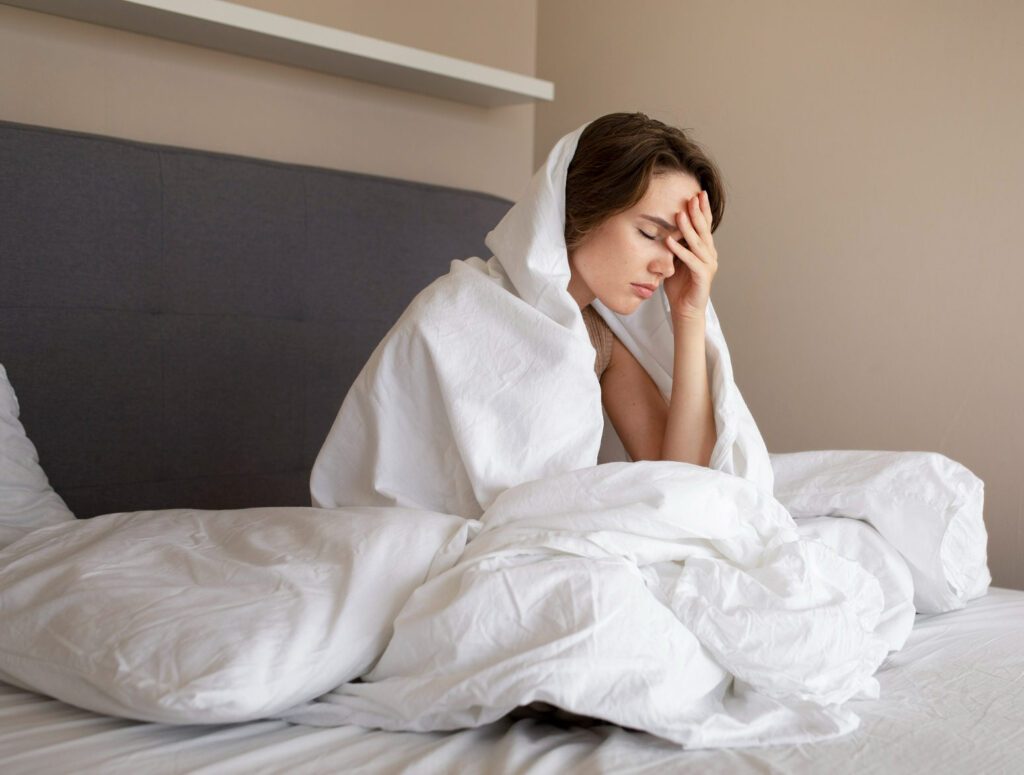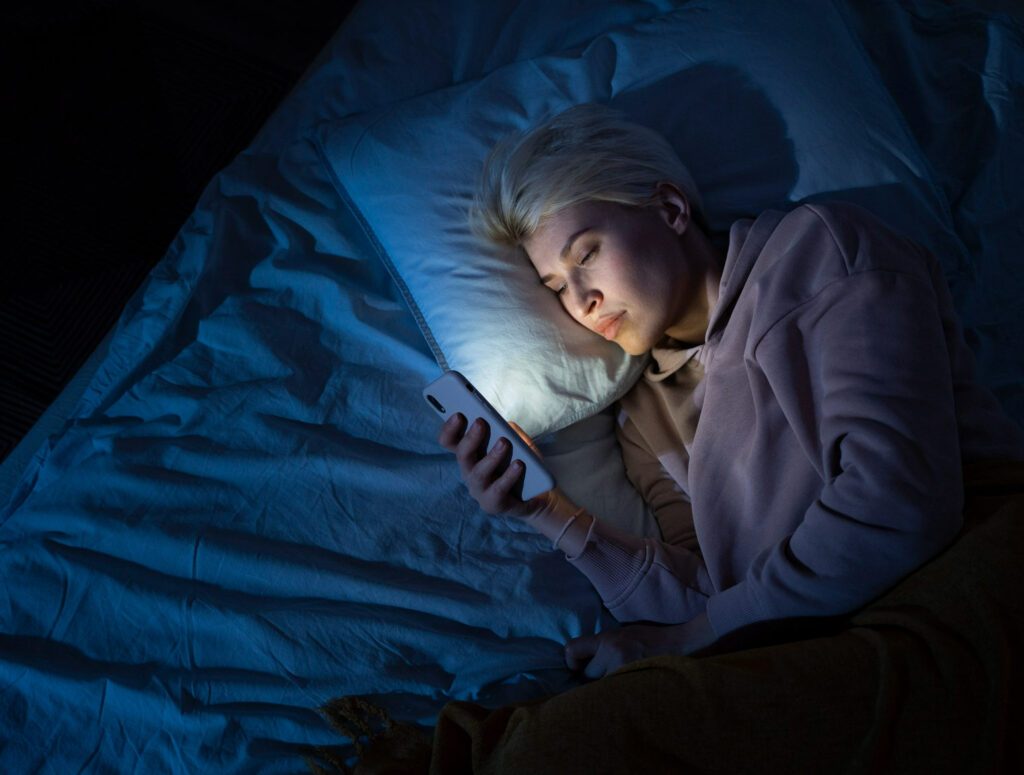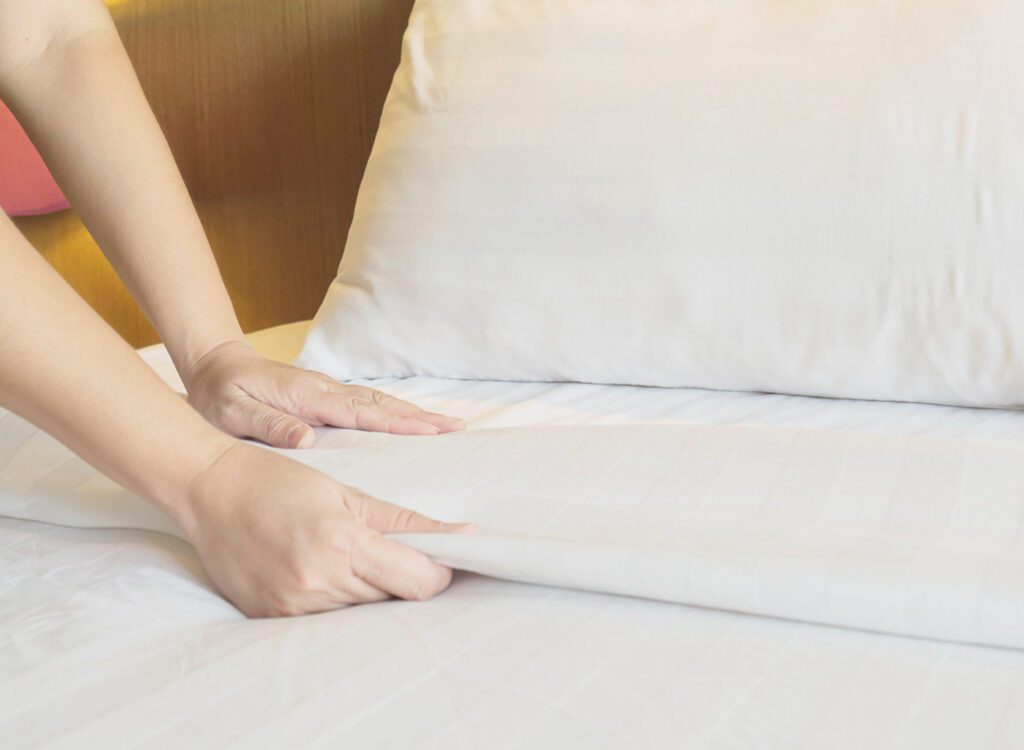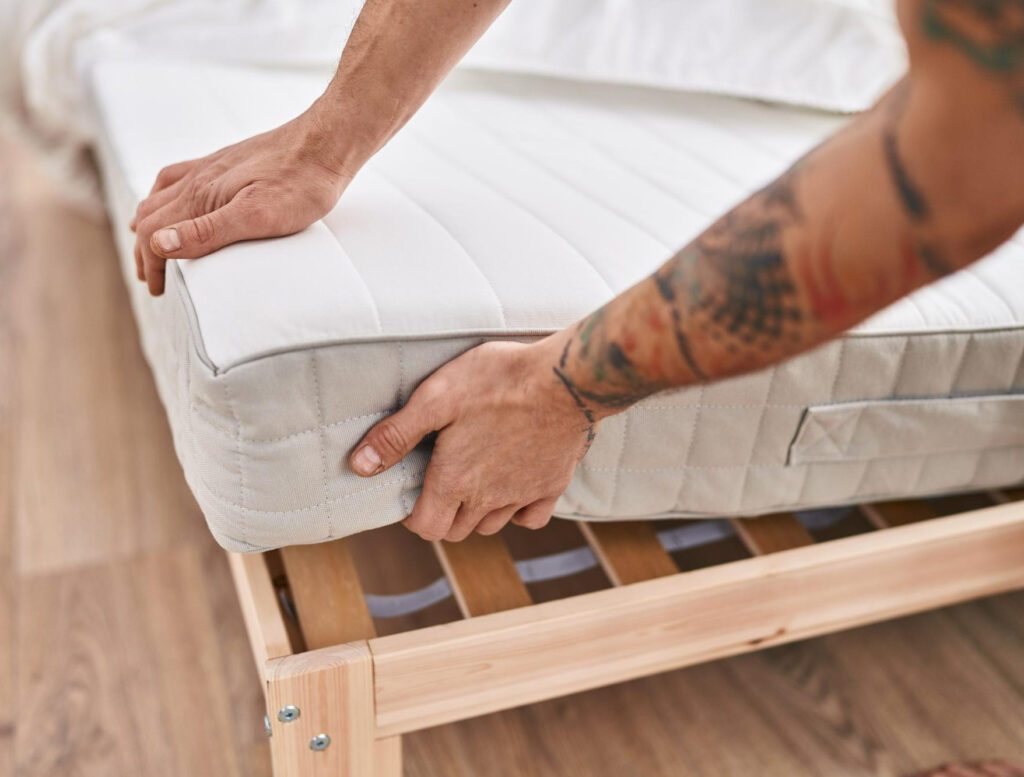A good (better) sleep has a positive effect on health
Along with physical activity and a healthy diet, good sleep is one of the foundations of a quality life. Lack of (good) sleep affects our health, mood, interpersonal relationships, and countless other aspects of life. It can also cause excess weight, poor brain function, and hormonal imbalance.
Otherwise, good sleep contributes to better brain activity, improves productivity, and contributes to the general vitality of the individual.
In recent decades, results show that the quality of the average person’s sleep is declining. The modern way of life does not prioritize rest and regeneration, which leads to burnout, depression, and lethargy. Try the following 5 techniques tonight, for better sleep and improving the quality of your own life!


Blue light from screens prevents good sleep
Our first and, in our opinion, the most important tip for better sleep is about exposure to blue light from the screen in the evening hours, which negatively affects the heart and sleep rhythm.
Staring at a TV, tablet, or mobile phone screen tricks your brain into thinking it's still daytime and prevents your body from winding down, reducing the production of the hormone melatonin, which is responsible for relaxation and deep sleep.
For a good night's sleep, try to adopt the following habits and reduce exposure to blue light in the evening:
- Download an app on your mobile phone which blocks blue light.
- Do not watch TV for at least two hours before going to bed.
- Avoid staring at a cell phone or computer screen for hours.
- Try to create new habits before bed, e.g. reading a book, a short walk, relaxing bath, etc.
Limit caffeine intake in the late hours
Caffeine is the next disruptor of good sleep. It remains in the blood for 6 to 8 hours after ingestion. Scientists studied its effects and came to the conclusion that consumption up to 6 hours before bedtime worsens sleep. This is especially dangerous for people who have trouble sleeping or who are sensitive to caffeine.
- Do not consume caffeine after three or four o'clock in the afternoon.
- If you are used to coffee in the evening, try decaffeinated coffee.
- Caffeine can be addictive, so don't give up if you experience headaches, mood swings, or lack of concentration. Within a few days, your body will get used to the reduced amount of caffeine.


Optimize your bedroom
If you suffer from poor sleep, one of the ways to sleep better is to improve your sleeping environment, i.e. your bedroom. Try these tips:
- Buy blackout curtains even if you think light doesn't bother you.
- Limit external sounds from the environment as much as possible.
- Make sure your bedroom is clean and well ventilated.
- Get the best mattress on the market within your budget.
- Good sleep requires an appropriate room temperature. Experts recommend 16 to 19 °C (max 20 °C).
Be physically active!
The next very important tip for better sleep and health is daily physical activity. Research has shown that regular sports activity shortens the time it takes to fall asleep and increases the average sleep time during the night. Although physical activity is the key to good sleep, it releases adrenaline, which can make it difficult for some people to sleep if you exercise late at night.
- Try for at least 15 minutes of moderate physical activity a day
- Limit physical activity by not exercising at least 2 hours before bedtime.
- Yoga and meditation can also help you sleep better.


Maybe it's time to replace your mattress
It is difficult to get a good night's sleep on an old and worn mattress, and after several years of use, mites and other microorganisms are present in the mattresses.
Studies have shown that just one month of sleeping on a new mattress reduces back pain by 57% and shoulder pain by 61%. The overall sleep quality of the participants improved by as much as 61%.
- If you sleep on your side, choose a soft mattress.
- If you sleep on your back or stomach, a harder mattress, medium or hard, is more suitable for you.

